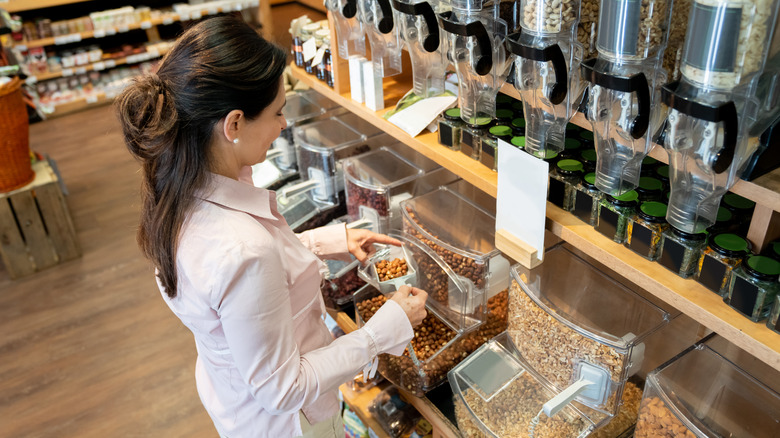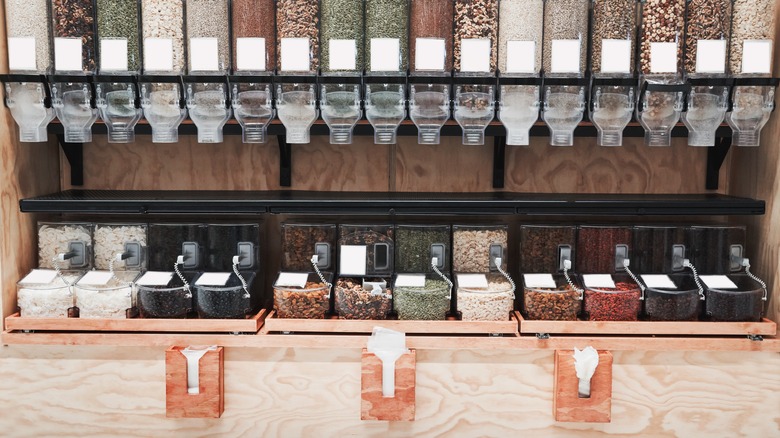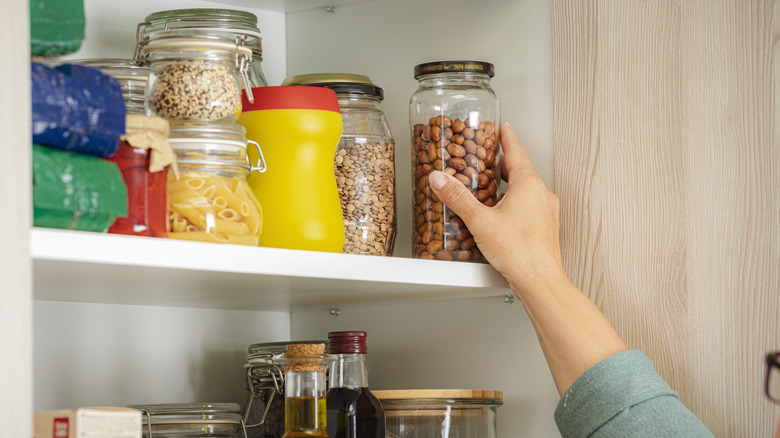Bulk Bins Are Your Friend If You're Grocery Shopping For One
Food waste is a major issue for many single people. It can be nearly impossible to finish all the servings when you're preparing meals for one. Along with the environmental harm associated with food waste, it's supremely frustrating to know that you're essentially throwing your hard earned dollars into the trash, too. Fortunately, there's a surprising solution to this common conundrum, and all it takes is a minor adjustment to your shopping habits.
Bulk bins at grocery stores feature a variety of loose foods, including all sorts of produce, rice, granola, and numerous other items. The great thing about these bins is that they allow you to purchase as much or as little of an item as you want, thereby preventing food waste. Bulk food dispensers can be found at many grocery chains, especially as more consumers become concerned about plastic waste and its impact on the environment. If you're wondering how to buy bulk food while saving money, employing the right strategy is key.
Best bulk bin items to purchase
Stocking up on bulk pantry staples ensures you always have the foundation for a hearty meal in your home — without having to worry about excess supply. And it can even save you money in the process. Available items can include rice and beans, which are usually more cost-effective when purchased in bulk. Buying spices from bins is also recommended, as packaged options are often quite expensive when you consider how much you actually get in the long run.
When it comes to snacks, bulk bins also offer a wide selection of nuts, as well as dried fruits, which are great alternatives if you consider that packages of nuts are usually exorbitantly priced and may prove too voluminous if you're shopping for one. The same can be said for dried fruits, which can be enjoyed on their own or be used to upgrade a chocolate chip cookie recipe, for example. Bulk bins allow you to purchase the right amount based on your dining habits, which cuts costs associated with packaged brands while simultaneously preventing food waste. But, to ensure optimum convenience and cost savings, you'll want to consider how you'll package bulk items once you get them home.
How to protect bulk items from spoilage
Because bulk foods lack the packaging of other items you might buy when grocery shopping, storage is crucial for keeping them fresh and tasty. In this case, there are some essential bin types for kitchen organization that can also be useful for protecting loose bulk food. Clear containers with airtight lids reduce air exposure and slow the rate of spoilage, while also offering a view of what's in each canister.
Along with choosing the right storage containers, you must also store canisters in the proper conditions to make bulk foods last in your pantry. Storing items in cool, dry areas is key. That means protecting bulk foods from direct sunlight, as well as sources of heat (such as a stove). Moisture can also cause food to spoil prematurely by fostering the growth of mold and bacteria, so avoid areas in proximity to leaking faucets or those prone to high humidity. With these tips, you'll find it easy to stick with your bulk-buying strategy.


